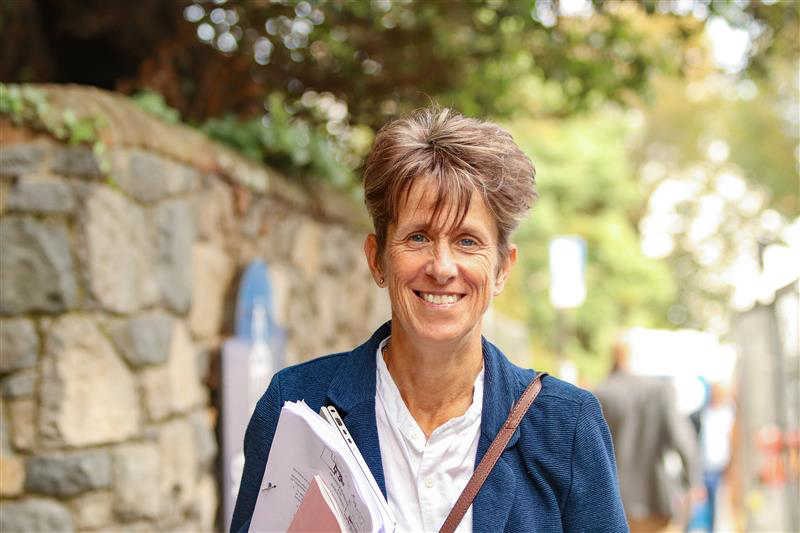


The implementation of a goods and services tax will not cost £90million, according to Policy and Resources.
The Committee has sought to quash claims that its proposed GST would cost £50million more to implement than original estimates.
Earlier this week, the three deputies behind an amendment dubbed the ‘Fairer Alternative’ - which offers a path away from GST - said they had discovered an oversight with P&R’s calculations.
They claimed that P&R’s plan would lead to a one-off impact on public sector pension fund to the tune of £50million, a factor Deputy Heidi Soulsby says has not been taken into account and brings the total cost of GST implementation to £90million.

Pictured: “Having undertaken further analysis of the effects of GST since the last tax debate, we have discovered a significant adjustment would be required to the public sector employees’ pension fund”, said Deputy Heidi Soulsby.
However, P&R have since come out and said that this impact has been acknowledged in the Funding and Investment Plan – which is set to be debated next week – and wouldn’t lead to any realised strain on the public purse.
“The claim that GST would cost ‘more than £90m’ is based largely on the false assertion that it would involve a £50m cost to taxpayers because of its effect on public sector employees’ pensions,” said P&R.
“The public sector pension fund (known as the Superannuation Fund) has more than £1.5 billion of assets. It is actuarially valued periodically based on assumptions on factors such as investment return, inflation and mortality rates. Actual performance will often vary from these assumptions – for example inflation in 2023 is much higher than the long-term assumption.
“The first-year introduction of GST would have a one-off inflationary impact (of approximately 3.5%) which is fully acknowledged in the Funding & Investment Plan, and which would wholly or partly flow through to increases in salaries and pensions in payment. That would lead to a funding strain of approximately £50m. However, such a strain on its own is extremely unlikely to require any specific action or additional expenditure.”
P&R said the £90million claim is deeply misleading and suggested it could be being used to “suit a political narrative”.
“The Committee welcomes challenges to its proposals and recognises some members do not support them.
“But it would urge anyone opposing the proposals to be honest and transparent with the community about the facts. It is not acceptable to omit information and mislead the community to suit a political narrative. It harms the credibility and reputation of the States as a whole, regardless of the outcome of the debate.”
“The introduction of a GST would not have a long-term impact on inflation. In other words, the roughly £1.5 billion Superannuation Fund for public sector pensions, which was fully funded at the last valuation at the end of 2020, would see a small dip in its total value which is unlikely to require any action or additional funding. Increases and decreases of this order on a fund of this size are par for the course, and it is misleading to present them as an additional cost, hidden or otherwise, to the taxpayer.
“The claims around the remaining £40m alleged ‘cost’ of GST are also misleading. £30m of this is nothing to do with GST but is instead the cost of restructuring the tax system to make it more progressive overall by introducing a personal allowance for social security contributions; increasing the level of the personal allowance; and introducing the new lower rate of income tax at 15% for all income up to £30,000. These measures are being proposed as part of the overall package because the Committee believes Guernsey has an opportunity to make the tax system as a whole more progressive and this money will go back into people’s pockets. This ensures those on lower incomes are protected and treated fairly. It is not a cost that comes from the proposed introduction of a GST.
“Of the remaining £10m, £8m is the cost of pre-emptively increasing old age pensions and benefits to ensure people on low incomes are not adversely affected by the one-year inflationary effects of introducing a new form of tax.
“The actual costs of introducing a GST are the one-off costs of implementation totalling £2.5m plus the ongoing administration cost of just under £1m per annum and the proposed ‘cost support scheme’ likely to cost about £1.4m a year.”
Pictured top: P&R President, Deputy Peter Ferbrache, and P&R Treasury Lead, Deputy Mark Helyar.
Comments
Comments on this story express the views of the commentator only, not Bailiwick Publishing. We are unable to guarantee the accuracy of any of those comments.